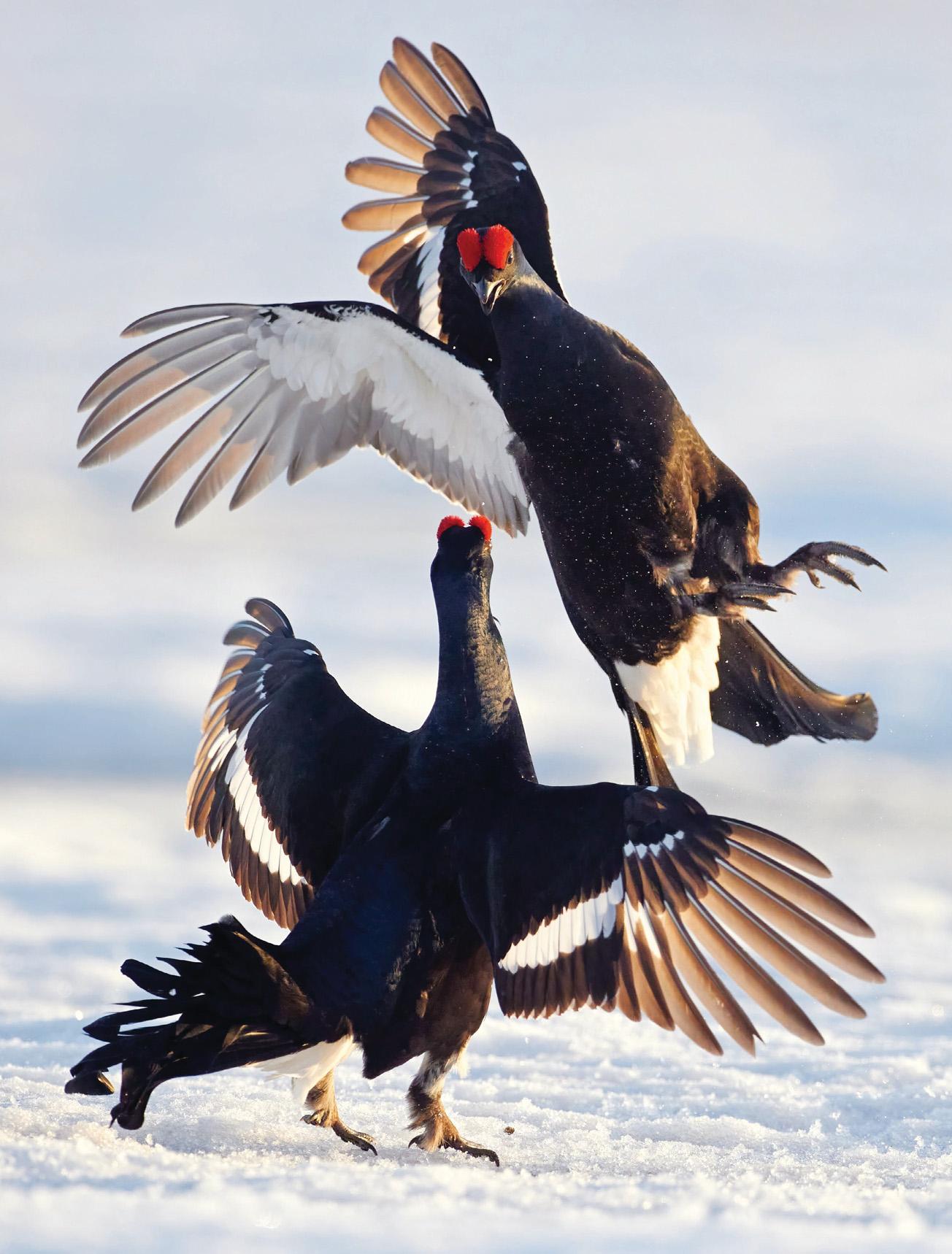
AS the US writer Nora Ephron wrote in the movie Heartburn, 'If you're looking for monogamy, you'd better marry a swan'. Some species of bird do, indeed, pair for life, yet other species including most songbirds are 'socially monogamous'. This means that, although they will form a pair for the entire breeding season, to help one another raise their young, the male (and, often, also the female) may also sneak off and try to mate with other birds.
In the male's case, this strategy is likely to mean he will have more offspring-even if he might never see some of them. For the female, mating with two or three males does not increase the number of chicks she can have, as she will still lay the same number of eggs. However, by mating with several males, she does benefit from having a range of young with different genetic qualities inherited from their fathers, some of which will be more likely to survive than others. This avoids, as it were, putting all her eggs in one basket.
Birds pair up by using two basic techniques. Songbirds, which make up more than half of all the world's bird species, have (as their name suggests) an attractive, tuneful song. This is almost always uttered by the male and serves two purposes: to attract and keep a female; and, at the same time, to warn nearby males to keep out of his territory and away from his mate.
Many larger birds, whose vocal talents are more limited, use a visual courtship display instead. This can be something quite basic, with the male simply showing off his attractive plumage to the female. Although it can also evolve into a truly memorable routine, in which both the male and female perform a complex series of dance moves, often exactly mirroring one another's movements. For humans, our own abilities to sing and dance were originally influenced by these incredible natural sounds and sights.
Bu hikaye Country Life UK dergisinin February 08, 2023 sayısından alınmıştır.
Start your 7-day Magzter GOLD free trial to access thousands of curated premium stories, and 9,000+ magazines and newspapers.
Already a subscriber ? Giriş Yap
Bu hikaye Country Life UK dergisinin February 08, 2023 sayısından alınmıştır.
Start your 7-day Magzter GOLD free trial to access thousands of curated premium stories, and 9,000+ magazines and newspapers.
Already a subscriber? Giriş Yap

Give it some stick
Galloping through the imagination, competitive hobby-horsing is a gymnastic sport on the rise in Britain, discovers Sybilla Hart

Paper escapes
Steven King selects his best travel books of 2024

For love, not money
This year may have marked the end of brag-art’, bought merely to show off one’s wealth. It’s time for a return to looking for connoisseurship, beauty and taste

Mary I: more bruised than bloody
Cast as a sanguinary tyrant, our first Queen Regnant may not deserve her brutal reputation, believes Geoffrey Munn

A love supreme
Art brought together 19th-century Norwich couple Joseph and Emily Stannard, who shared a passion for painting, but their destiny would be dramatically different

Private views
One of the best ways-often the only way-to visit the finest privately owned gardens in the country is by joining an exclusive tour. Non Morris does exactly that

Shhhhhh...
THERE is great delight to be had poring over the front pages of COUNTRY LIFE each week, dreaming of what life would be like in a Scottish castle (so reasonably priced, but do bear in mind the midges) or a townhouse in London’s Eaton Square (worth a king’s ransom, but, oh dear, the traffic) or perhaps that cottage in the Cotswolds (if you don’t mind standing next to Hollywood A-listers in the queue at Daylesford). The estate agent’s particulars will give you details of acreage, proximity to schools and railway stations, but never—no, never—an indication of noise levels.

Mission impossible
Rubble and ruin were all that remained of the early-19th-century Villa Frere and its gardens, planted by the English diplomat John Hookham Frere, until a group of dedicated volunteers came to its rescue. Josephine Tyndale-Biscoe tells the story

When a perfect storm hits
Weather, wars, elections and financial uncertainty all conspired against high-end house sales this year, but there were still some spectacular deals

Give the dog a bone
Man's best friend still needs to eat like its Lupus forebears, believes Jonathan Self, when it's not guarding food, greeting us or destroying our upholstery, of course